Oral and Maxillofacial Surgery Residency
About the Program
 The Department of Oral and Maxillofacial Surgery offers a four-year, fully accredited residency training program. Upon completion of study, the resident is eligible for examination leading to certification by the American Board of Oral and Maxillofacial Surgery.
The Department of Oral and Maxillofacial Surgery offers a four-year, fully accredited residency training program. Upon completion of study, the resident is eligible for examination leading to certification by the American Board of Oral and Maxillofacial Surgery.
The goal of this residency is to provide the highest level of training in the full scope of oral and maxillofacial surgery, and to insure development of skilled surgeons. The program boasts a strong academic flavor with a high priority given to research. The program boasts a strong didactic program.
Two primary teaching facilities are utilized to provide educational and patient care experiences:
- The University of Iowa Medical Center on University Campus
- The University of Iowa College of Dentistry
Both facilities are in close physical proximity and are undeniably among the very best and well-equipped in the country. To assure training and exposure in the full scope of oral and maxillofacial surgery, outside rotations are provided at the expense of the department. Rotations are further outlined under curriculum.
Faculty, Staff and Facilities
Two primary teaching facilities are used to provide educational and patient care experiences:
- University of Iowa Hospitals & Clinics
- University of Iowa College of Dentistry
Both facilities are in close physical proximity and are undeniably among the very best and well-equipped in the country. To assure training and exposure in the full scope of oral and maxillofacial surgery, outside rotations are provided at the expense of the department. Rotations are further outlined under curriculum.
Seven full-time faculty members cover UI Hospitals & Clinics and the UI College of Dentistry. Other adjunct faculty participate in undergraduate and graduate education. The faculty is diverse, offering training and experience from multiple locations throughout the country. The oral and maxillofacial surgery program is supplemented by a strong, surgically oriented orthodontic program at the UI College of Dentistry. A prosthodontist enhances training at UI Hospitals & Clinics, and all disciplines participate in a comprehensive cleft lip and palate team.
The UI College of Dentistry offers interdisciplinary relationships with all graduate and undergraduate departments, providing considerable experience in dentoalveolar surgery, sedations, outpatient general anesthetics, and implants. Staff members include a strong compliment of full-time registered nurses, dental assistants, and clerical support. The College of Dentistry offers a state-of-the art audiovisual and graphics department, frequently utilized for case documentation and for presentations given locally, nationally, and internationally.
The Dows Institute of Research is an integral part of the College of Dentistry offering complete research facilities and equipment, animal operatories, and associated faculty, staff and research assistance; such assistance includes a full-time statistician.
The Hospital Dentistry Institute at UI Hospitals & Clinics is a modern, up-to-date facility featuring clinical areas for:
- Oral and Maxillofacial Surgery
- Prosthodontics
- General Dentistry
The Oral and Maxillofacial Surgery Department provides each resident with a work station within the resident's room. Conferences are held in a large, modern conference room. The operating suites at UI Hospitals & Clinics are large, modern, and rival any throughout the country, private or otherwise.
Curriculum
The residency is organized to provide an advancing educational experience with increasing responsibility over a four-year period in order to develop medical judgment, surgical skills, and demonstrated competence. The training program consists of formal teaching and clinical experiences on assigned rotations, patient care, didactic programs, and conferences.
We expect the residents to take responsibility for enhancing their learning environment, and we encourage outside reading. The graduate program director reviews the curriculum yearly with input from all faculty and staff members to ensure an evolving experience and improvements in specific rotations and didactic experiences.
The didactic program is enhanced with teaching patient rounds, grand rounds, and journal club. Presentations and participation at national meetings and forums are highly encouraged and financially supported.
First-year
| Basic Science Review and Anatomy | 4 weeks |
| Anesthesia (16 weeks adult, 4 weeks pediatrics) | 20 weeks |
| Medicine | 8 weeks |
| Oral and Maxillofacial Surgery | 20 weeks |
The first-year resident completes the 12 months of rotations as outlined above. Graduated levels of responsibility are given as knowledge and surgical skills develop.
Second-year
| General Surgery | 4 weeks |
| Trauma Surgery | 4 weeks |
| Pediatric General Surgery | 4 weeks |
| Surgical Oncology | 4 weeks |
| Plastic Surgery | 4 weeks |
| Neurosurgery | 4 weeks |
| Oral and Maxillofacial Surgery | 30 weeks |
During this period, the resident is engaged in progressive, graduated comprehensive training in all clinical and hospital phases of the specialty practice of oral and maxillofacial surgery. Full-time rotations of 18 weeks on the General Surgery Service and 4 weeks on the Neurosurgery Service are completed.
The remainder of this time period is spent in clinical oral and maxillofacial surgery at University of Iowa Hospitals & Clinics and the UI College of Dentistry performing oral surgical procedures that gradually increase in difficulty to develop the resident's surgical skills and judgment as rapidly as the aptitude of the individual resident permits.
Instruction, training, and experience encompass procedures for admission of patients, accomplishment of preoperative histories, system reviews, physical examinations, ward orders, indicated laboratory procedures, preoperative care, surgical procedures, postoperative care and ward management, inter-service consultation, and completion of clinical records.
Daily ward rounds are conducted. The resident attends all department didactic conferences in addition to those of visiting lecturers. Elective courses are encouraged as time permits. A research project is required and is typically begun during the second year.
Third-year
| Surgical Intensive Care Unit | 4 weeks |
| Otolaryngology | 4 weeks |
| Oral & Maxillofacial Surgery | 44 weeks |
The third-year resident continues with the program as described for the second year.
Fourth-year
The fourth-year residents spend all twelve months in OMFS. Greater responsibilities are given for patient care, administration, and teaching as granted by the staff on an individual basis. Increasing responsibility for planning and management of complex surgical cases occurs.
Clinical instruction and supervision of the junior graduate residents and rotating dental students assigned to the oral and maxillofacial surgery service is expected. Comprehensive mock board examinations are given yearly encompassing the full scope of oral and maxillofacial surgery.
Research
All residents are expected to undertake a significant research project leading to a national presentation. Faculty mentors are readily available to assist and direct research projects as needed.
Departmental funds are available to ensure project viability. Research projects span the entire scope from clinical investigations to animal and basic science endeavors.
The residents have ready access to a number of fine medical and dental libraries. The Department of Oral and Maxillofacial Surgery maintains an up-to-date compilation of textbooks and journals directly related to the specialty.
The Hardin Library for the Health Sciences has more than 220,000 bound volumes and 3,500 serials and journals. Multiple journals are now available on-line through Hardin Library.
Evaluation and Assessment
It is our philosophy to provide close and careful supervision in a graded fashion to all residents. Faculty input is ever present in the inpatient and outpatient settings. Upper-level residents also provide supervision in a structured setting allowing them to increase their own clinical, surgical, and teaching skills. Residents actively participate in all phases of patient care, ensuring continuity of training from the presurgical phase to the postoperative phase of treatment.
The process of evaluation includes a semiannual evaluation with feedback from faculty, off-service rotations, and staff. Such evaluations occur formally with the graduate program director emphasizing strengths, weaknesses, and guidelines to promote the resident's professional development. Yearly in-service training exams and mock board examinations further identify strong and weak areas and ensure competency.
How to Apply
We appreciate your interest in applying to our program. In this section you will find information on specific application requirements for the externship, internship, and residency programs.
Deadlines
All supplemental materials should be sent to the department directly by Sept. 1 of each year. Our application materials deadline is Sept. 1 except the CBSE score. We will accept CBSE scores after this date, please forward your score as soon as it is received.
Application for Admission
The program participates in the Postdoctoral Application Support Services (PASS) of the American Association of Dental Schools as well as the Postdoctoral Dental Matching Program.
You may obtain your PASS application by writing to the following address:
Postdoctoral Application Support Service (PASS)American Dental Education Association
1400 K Street NW, Suite 1100
Washington, DC 20005
617.612.2065 (PASS Customer Service)
800.353.2237 (Toll-Free Customer Service)
passinfo@passweb.org
Please note that in addition to the PASS application, we request a 2x2 inch photograph for identification purposes. This may be attached to the PASS application or sent separately.
All applicants are required to take the National Board of Medical Examiners Comprehensive Basic Science Examination. This test is offered through AAOMS and further information can be found at www.aaoms.org/education-research/dental-students/nbme-for-oms-applicants.
Mail additional application material to:
Dr. Doug Kendrick, DDS, FACSOral and Maxillofacial Residency Program Director
200 Hawkins Drive
Iowa City, IA 52242
Final acceptance requires a personal interview.
Bloodborne Pathogens Policy
Externship Applicants
The Department of Oral and Maxillofacial Surgery offers a one week hospital-based externship in oral and maxillofacial surgery. The program is designed for those highly motivated dental students who seek more intensive exposure to the specialty beyond what is traditionally incorporated in undergraduate dental education.
Externs are exposed to the full scope of oral and maxillofacial surgery including spending ample time in the operating room, as well as assisting the on-call resident with emergency room and ward care procedures. Participants make daily hospital rounds and attend all resident educational seminars and conferences.
Requirements for individuals interested in participating in this program include:
- Top 25% of dental school class
- Letter of recommendation
- Copy of dental school transcripts
- Letter of intent from applicant
- For questions regarding the externship program, please contact Mary Litwiller at mary-litwiller@uiowa.edu.
Applications for the externship program can be sent to:
Mary LitwillerOral and Maxillofacial Surgery Residency Program Coordinator
Hospital Dentistry Institute
200 Hawkins Drive
Iowa City, Iowa 52242
Internship Applicants
The University of Iowa Oral and Maxillofacial Surgery program sponsors a one year internship in Oral & Maxillofacial Surgery. This position is ideal for those interested in eventually pursuing a residency position in oral & maxillofacial surgery. Intern responsibilities are similar to those of first year residents, including treating patients in the outpatient clinics, taking call, going to the operating room, and participating in all departmental didactics. Past interns at the University of Iowa have had an excellent track record in eventually matching into an oral & maxillofacial surgery residency program.
Interested applicants should submit a letter of interest, CV and all supporting materials to:
Dr. Doug Kendrick, DDS, FACSOral and Maxillofacial Surgery Residency Program Director
Hospital Dentistry Institute
51362 Pomerantz Family Pavilion
200 Hawkins Drive
Iowa City, Iowa 52242
Our People
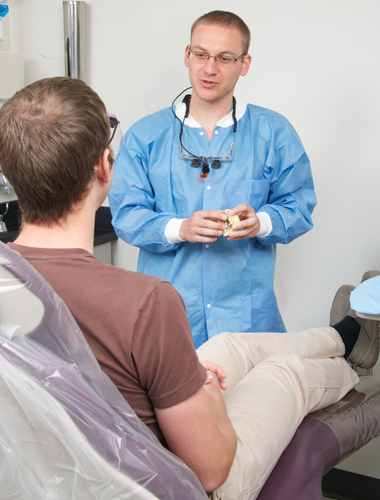 At Iowa, you will be exposed to some of the best clinicians, researchers and teachers in our profession. Through formal mentoring programs as well as an open-door philosophy, we provide high-powered opportunities for you to learn career-long lessons from these dedicated professionals.
At Iowa, you will be exposed to some of the best clinicians, researchers and teachers in our profession. Through formal mentoring programs as well as an open-door philosophy, we provide high-powered opportunities for you to learn career-long lessons from these dedicated professionals.
Additionally, we are committed to helping you achieve your training aims. Classmates in your residency class will share in the support and encouragement that will help you excel.
Faculty
Oral and Maxillofacial Surgery and Prosthodontics Faculty
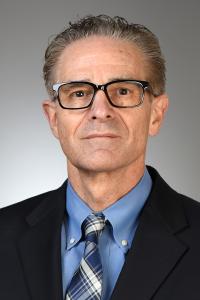
Kirk L. Fridrich, DDS, MS, FACS
Professor and Chair
Oral & Maxillofacial Surgery
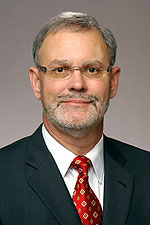
Richard G. Burton, DDS, MS, FACS
Professor
Oral & Maxillofacial Surgery
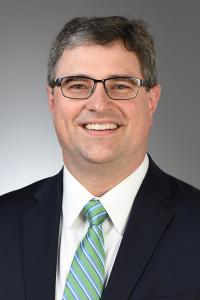
Steven L. Fletcher, DDS, FACS
Associate Professor, Vice Chair
Oral & Maxillofacial Surgery
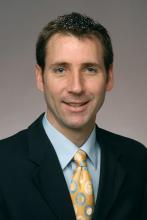
David G. Gratton, DDS, MS
Associate Professor and Director
Oral & Maxillofacial Surgery Prosthodontics
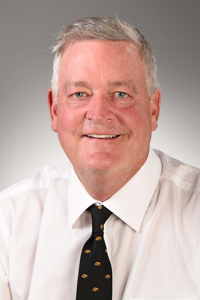
Timothy J. Holton, DDS, MS
Visiting Assistant Professor
Oral & Maxillofacial Surgery
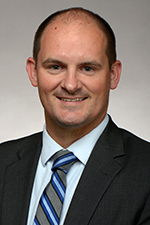
Douglas Kendrick, DDS, FACS
Graduate Program Director
Associate Professor
Oral & Maxillofacial Surgery
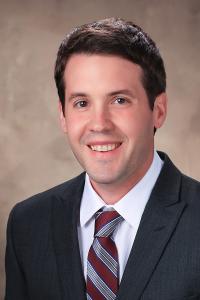
Christopher Kepros, DDS
Assistant Professor
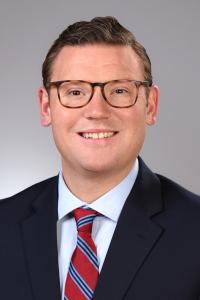
Jeffrey S. Marschall, DMD, MD, MS
Clinical Assistant Professor
Oral & Maxillofacial Surgery
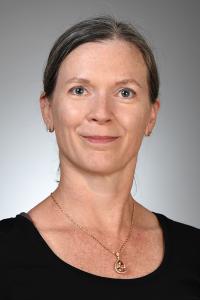
Teresa Morgan, DDS, MS
Associate Clinical Professor
Oral & Maxillofacial Surgery
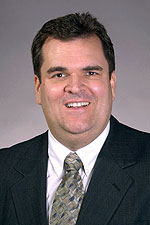
William Synan, DDS
Predoctoral Program Director
Clinical Professor
Oral & Maxillofacial Surgery
Other Faculty
- John W. Hellstein, DDS, MS, Oral Pathology, Radiology & Medicine
- Emily A. Lanzel, DDS, MS, Oral Pathology, Radiology & Medicine
- Michael J. Kanellis, DDS, Pediatric Dentistry
- Lina M. Moreno Urbie, DDS, PhD, Orthodontics
Current Residents
Fourth-year Residents
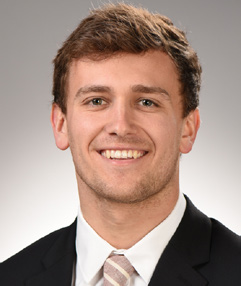
Mitchell W. Frerichs, DDS
University of Iowa College of Dentistry, 2020
Wartburg College, Biology
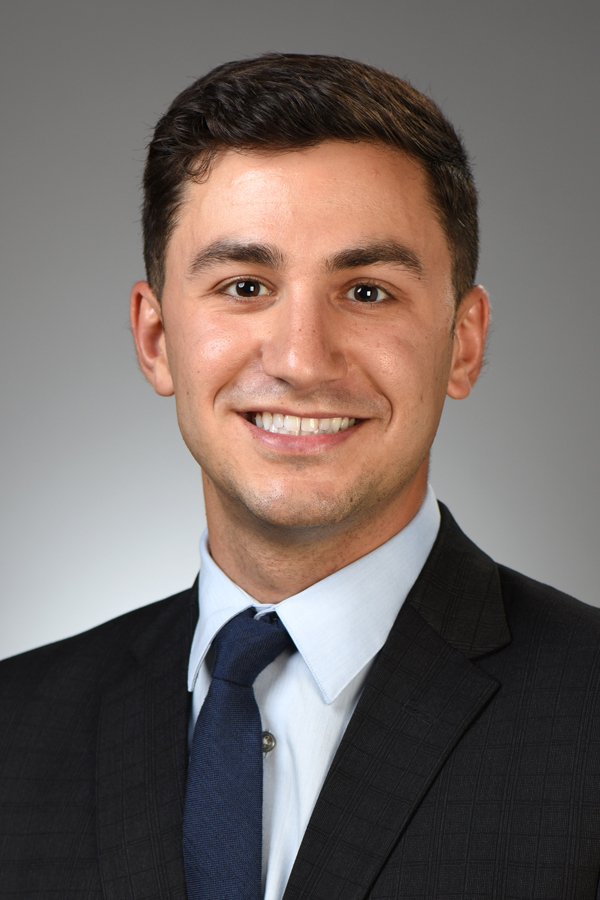
Ardit Haxhia, DDS
Marquette University School of Dentistry, 2021
St. Louis University, Biology
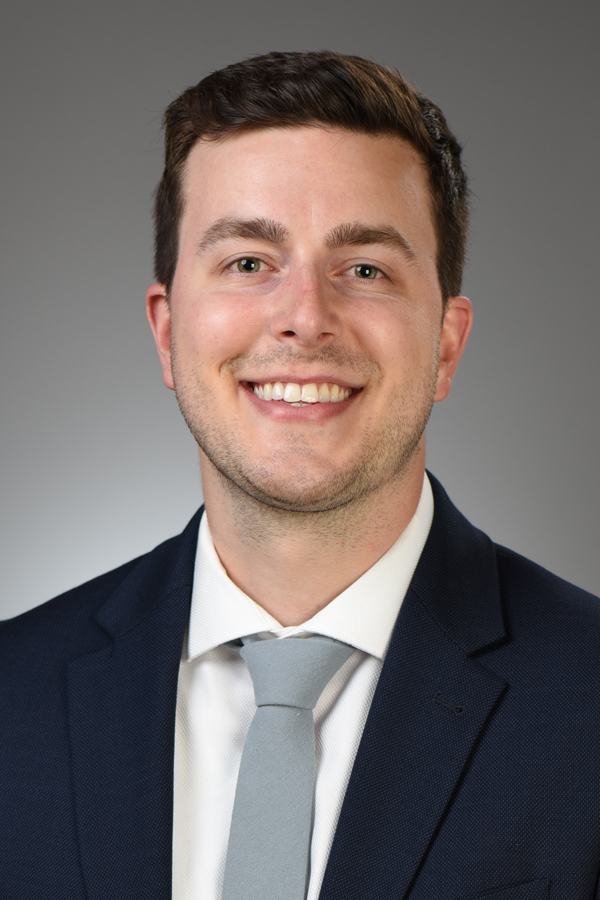
Jaden P. Holton, DDS
University of Iowa College of Dentistry, 2020
University of Iowa, Finance
Third-year Residents
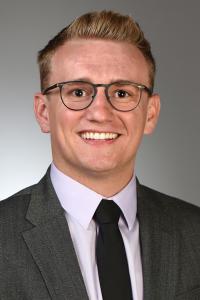
Erik Mangelson, DDS
University of Utah, 2022
University of Utah, Kinesiology
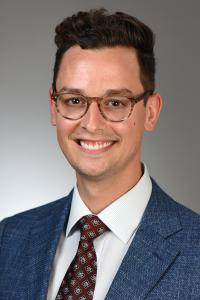
Logan W. Sardzinski, DDS
University of Iowa College of Dentistry, 2020
St. Olaf College, Chemistry
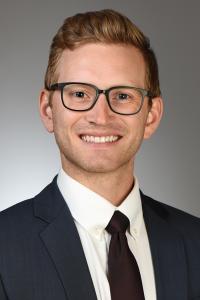
Jeffrey Schootman, DDS
Marquette University, 2022
St. Louis University (MO), Public Health
Second-year Residents
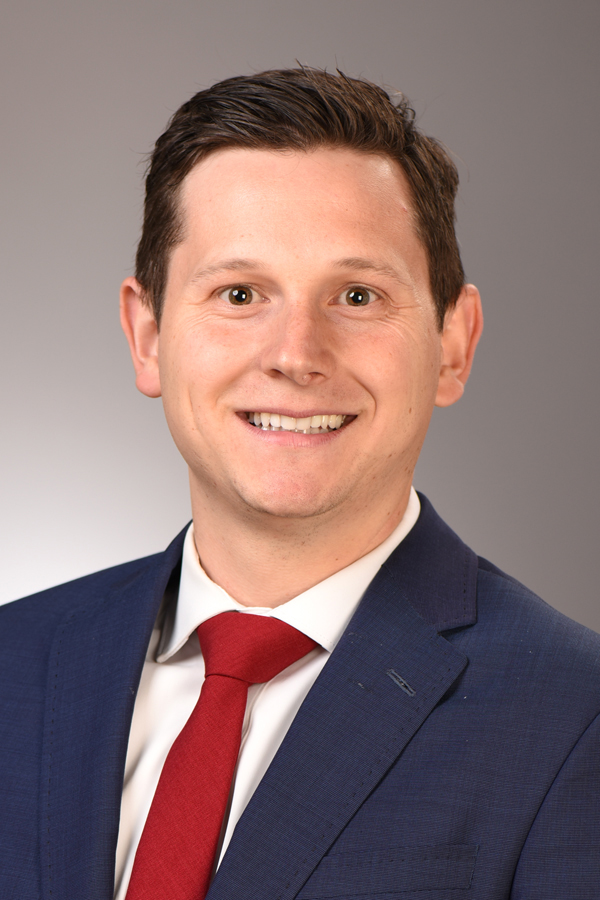
Joseph D. Camargo, DDS
University of California-Los Angeles, 2023
Brigham Young University, Neuroscience
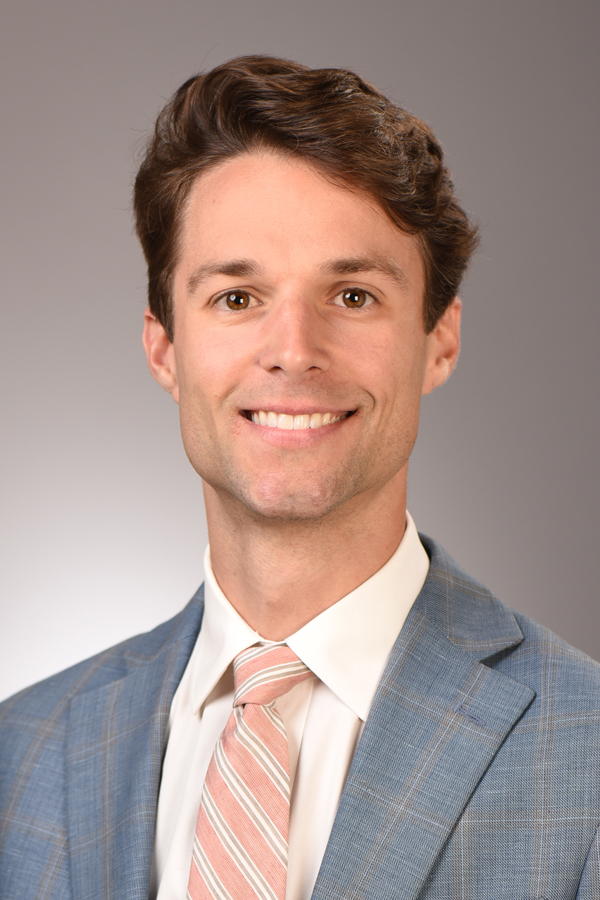
Christian W. Johnson, DDS
Louisiana State University-Health Sciences Center, 2023
Louisiana State University-Baton Rouge, Biology
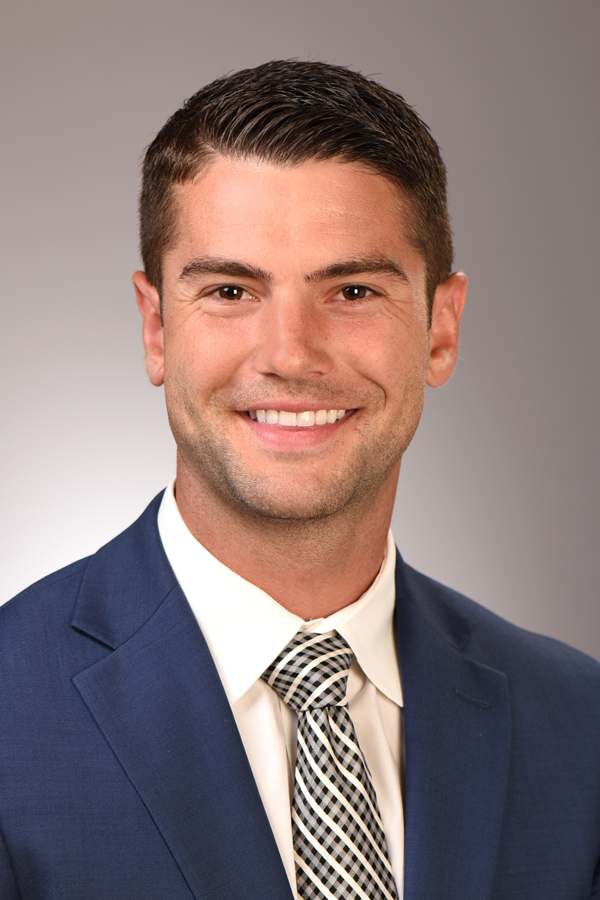
Alec J. Piwowarczyk, DDS
University of Missouri - Kansas City, 2023
Southern Illinois University-Edwardsville, Biology
First-year Residents
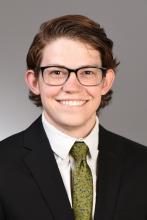
Bryce Bulloch, DDS
Dixie State University of Utah, Biomedical Science
Virginia Commonwealth University, 2024
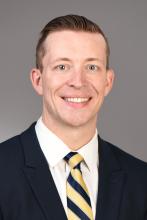
Austin B. Clyde, DDS
Brigham Young University, Spanish
Ohio State College of Dentistry, 2024
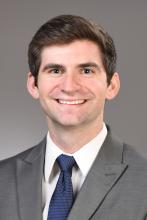
Andrew D. Marchant, DDS
Brigham Young University, Physiology
University of Washington, School of Dentistry, 2024
Interns
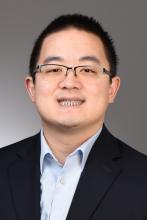
William Jin, DMD
Washington University-St. Louis, Biology
Boston University Medical School, MS, 2020
Boston University School of Dental Medicine, 2024
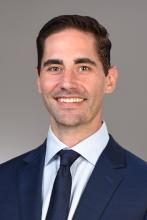
C. Landen Kirby, DDS
University of Texas, Neuroscience
Louisiana State University, Health Science Center, 2024